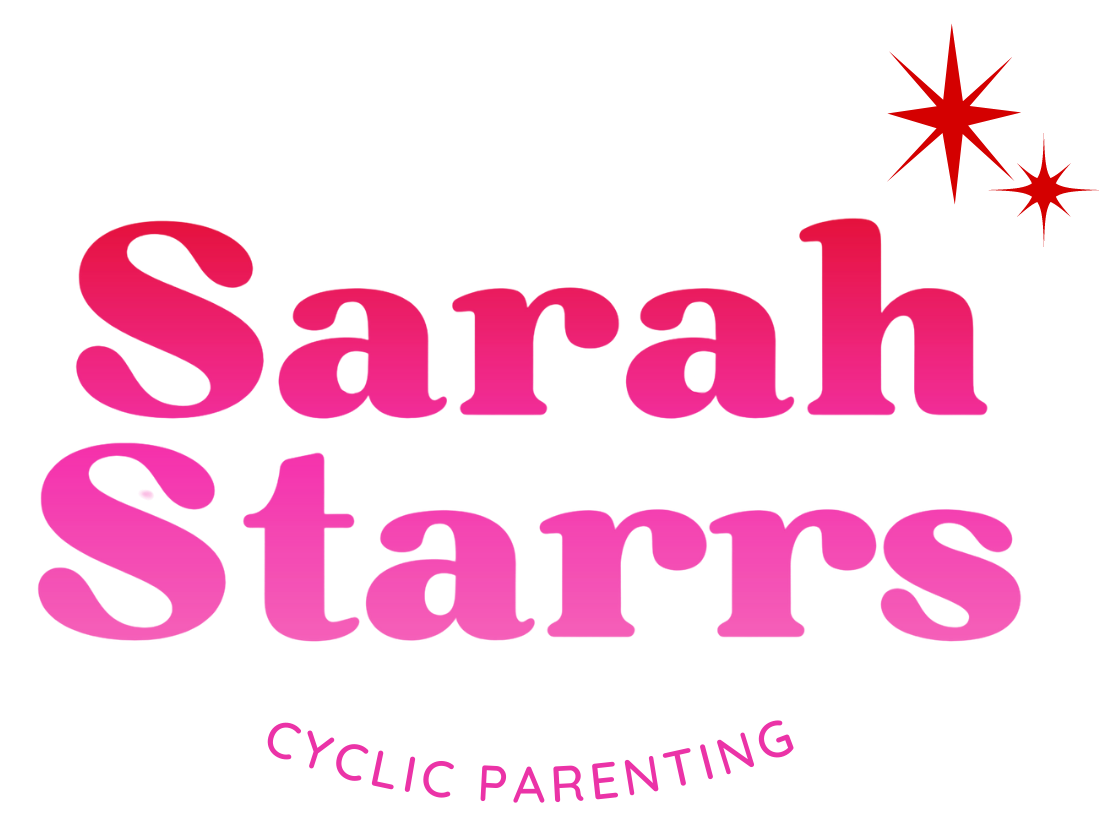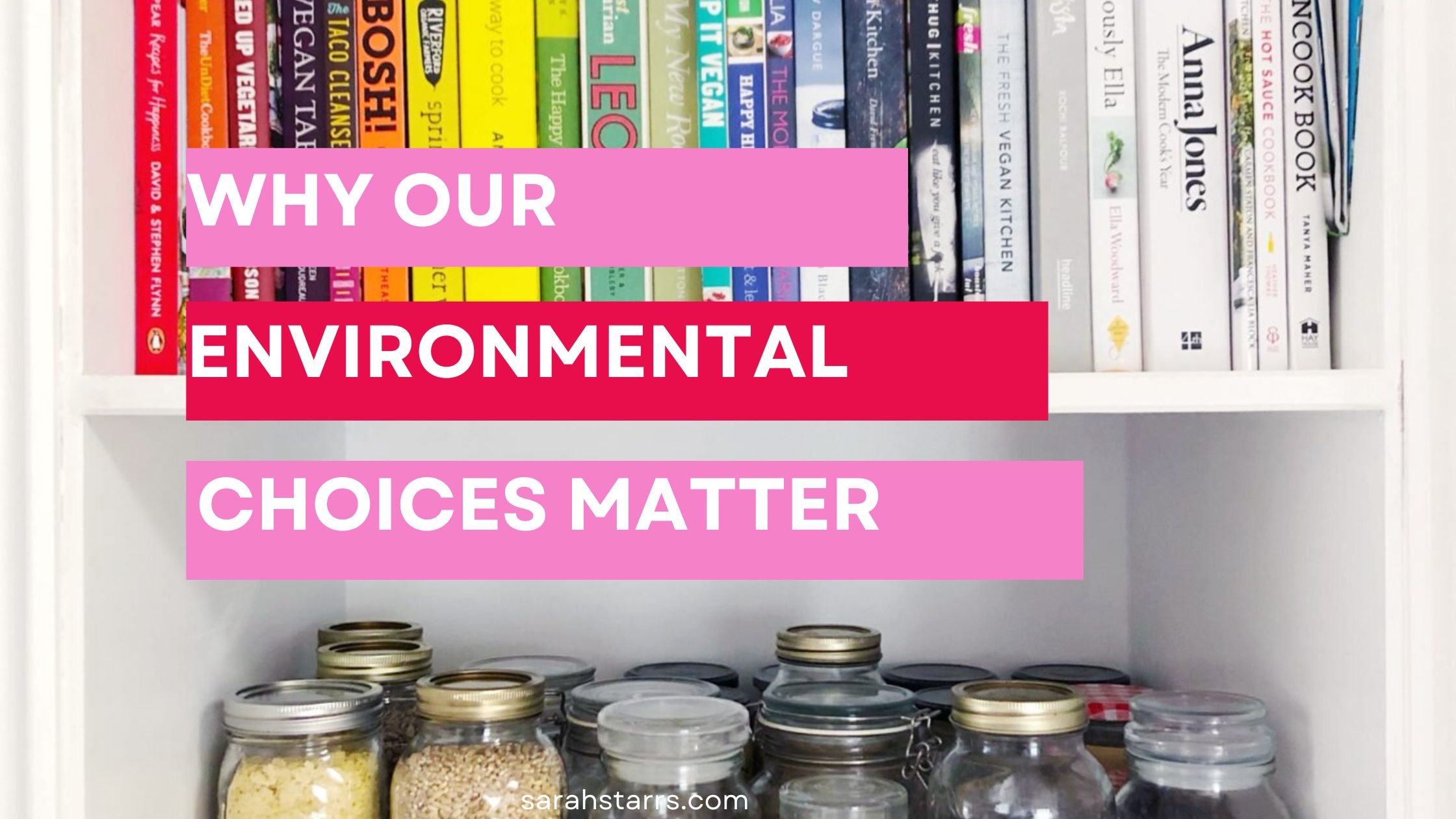Why Our Environmental Choices Matter
Current news about the environment is upsetting. Last year's Intergovernmental Panel on Climate Change report stated in no uncertain times that we have only 12 years to limit the catastrophic effects of climate change. Drastic action must be taken. Many of us are caught between feeling completely helpless and desperate to make a difference.
So we make little swaps to reduce our waste, to lighten our load on the planet. We choose cloth nappies and reusable wipes. We buy the packaging-free produce at the supermarket. We shop secondhand and opt for reusables wherever we can.
But what difference can one family make in the face of such global waste and devastating statistics? It can often feel as though we’re facing an impossible, uphill battle when we step out of our eco-friendly bubbles and see how little most people are thinking about their consumption.
And the neasayers would tell you that your choices don’t matter. Even many who tout themselves as environmentalists are quick to tell you that 70% of the world’s carbon emissions come from only a handful of corporations. Or that unless you’re willing to give up flying forever, your lifestyle choices amount to nothing.
As a side note: I don’t think that telling people there is one way to live a low impact lifestyle is helpful. It’s more likely to make people shut down and see the whole movement as futile than it is to help them consider their choices. Giving up animal products, driving less, and buying more locally-produced products would all have a similar impact on emissions than giving up one flight a year. Which doesn’t even take into account the massive privilege that comes with insisting people give up air travel.
It is true that without government interventions and massive corporate changes, we are unlikely to adequately address the problems facing our environment. But that doesn’t mean that our personal choices don’t matter, in fact I’d argue that it makes them absolutely critical. Here’s why:
1. Our choices influences governments and corporations.
Governments and corporations depend on us for our votes and our dollars. They’re not going to be willing to make changes that will create discomfort for us if they think it will mean losing those things. We need to show that we’re willing to adapt and change our ways and even go without in the name of the environment. And that in fact they’ll gain more support from us if they commit to making changes and pull real, tangible action towards addressing climate change and other environmental problems.
2. Our small actions add up.
Even the small action of replacing your toothbrush with a bamboo one will keep 0.8kg of plastic out of landfill over the course of a decade (the average toothbrush weighs 20g, assuming you get a new toothbrush four times a year: 20 x 4 x 10 = 800). That doesn’t sound like much but multiply that by every person in your home and by every other tiny change you can make and pretty soon it adds up to a large impact. There are also thousands of stories of small groups of thoughtful, committed citizens changing government and corporate policy for the better, as well as improving the world through their individual actions. Gina Martin's advocacy work means that upskirting is now illegal in the UK. After pressure from customers, McDonalds switched to biodegradable packaging in the 80s. A 16-year old in Florida invented a device that harnesses the power of the ocean to bring electricity to developing countries. From cleaning up local parks and rivers to bringing massive corporations to their knees, the examples are endless. The power truly does lie with us and we need to act from that knowledge.
3. It’s good for us.
When we know better, we do better. And if we don’t, it pulls us out of alignment. If every time we accept a plastic bag or eat dairy or whatever it is for you, we feel a tiny tug that we’re doing the wrong thing, that effects us physically, mentally, emotionally, and spiritually. When we do what we can to align our actions with our values (recognizing that circumstances and societal systems mean that we will have to do so imperfectly), everything in our life can flow a little more easily.
4. We get to be the lighthouse.
By quietly making changes in your life and showing how joyful, creative, and economical they can be, you will demonstrate what’s possible and perhaps inspire others to make similar choices. This ripple effect means that we’re not one family making changes; we’re part of a larger movement and that’s powerful!
I think it’s important to note that undertaking these kinds of personal choices requires privilege and it should always be on those with the most privilege to shoulder most of the burden. And this is also why it’s so important not to preach one specific way to live a low impact lifestyle (the impact on disabled people if a plastic straw ban was put into place is a good example of this).
But I also thought it was important to write this article because it’s discouraging when someone tells us that our efforts to make the world a better place are pointless and it might have you questioning whether they’re even worth the effort. I hope I’ve made you more confident in knowing that they are. You’re doing amazing things. Keep going!



